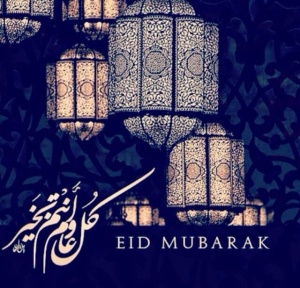A Golden Opportunity to Become a Muttaqī
By Hadrat Mawlānā Muhammad Saleem Dhorat hafizahullāh
Events and occasions give us an opportunity to track the passing of time; otherwise days, months and years would pass by without us realising. Whenever we look towards the future, it seems very distant; however, upon reflection over the past we realise how quickly time has elapsed. To understand the longevity of our future we have to evaluate it on our experience of the past.
As usual, the current Ramadān will also feel very long and the end will seem a long way away, but the reality of these days can be understood by the many Ramadāns we have experienced in the past; how short they were and how quickly they passed, and how after each Ramadān we felt that if only there were a few more days so that some beneficial action could be carried out. In order to save ourselves from such regret once again, it is of the utmost importance that we realise the great opportunity Ramadān is offering us and make the most of it.
The Objective of Ramadān
First and foremost we need to understand that Allāh ta‘ālā has granted us this great gift of Ramadān so that we may become muttaqīn – the people of taqwā.
Allāh ta‘ālā states:
O you who believe, the fasts have been enjoined upon you as they were enjoined upon those before you, so that you may become people of taqwā. [2:183]
My late Shaykh, Hadrat Hājī Fārūq rahimahullāh taught me the following supplication:O Allāh! You have given us this month so that we become people of taqwā; so make us from the people of taqwā.
What is Taqwā?
Now, the question arises what is taqwā? Once ‘Umar radhiyallāhu ‘anhu asked Ka‘b Al-Ahbār radhiyallāhu ‘anhu the meaning of taqwā. In reply, Ka‘b radhiyallāhu ‘anhu, asked ‘Umar radhiyallāhu ‘anhu if he had ever walked on a thorny path and if yes how he had passed through it. ‘Umar radhiyallāhu ‘anhu explained that he gathered his clothes and ensured that his clothes didn’t get caught by the thorns. Ka‘b radhiyallāhu ‘anhu said, “That is taqwā.” The explanation of Ka‘b’s statement is that we too should pass through this world very carefully, ensuring we do not fall prey to nafs and Shaytān and commit a sin; be it minor or major.
Taqwā is a nūr (light) which enlightens and spiritually strengthens the heart to such an extent that the person finds a natural dislike for sinful activities. This becomes a barrier between him and the disobedience to Allāh ta‘ālā. This nūr of taqwā is acquired by forcing oneself to carry out the commands of Allāh ta‘ālā and stay away from His disobedience no matter what sacrifice one has to give. This sacrifice is called mujāhadah, and every time this is carried out a special nūr is created in the heart. The more the obedience the stronger the nūr, until eventually the heart is enlightened to such an extent that it will not tolerate the filth of any sin.
The similitude of this can be likened to a person who abhors dirt. If he needs to walk through a dirty path way, he will have a natural aversion for the dirt and will instinctively gather his clothes to ensure his clothes don’t get soiled. Similarly, once the heart has become filled with the nūr of taqwā, it will abhor sinful activities and places of evil and will develop an aversion to them, leading one to automatically safeguard himself.
On the other hand when a person disobeys Allāh ta‘ālā, the nūr of taqwā in the heart diminishes. The more sins a person commits, the more darkness engulfs the heart until a point comes when the heart becomes inclined towards disbelief. This very fact has been narrated in a hadīth of Rasūlullāh sallallāhu ‘alayhi wasallam.
Virtues of Taqwā
We can understand from the above that taqwā is one of the greatest favours Allāh ta‘ālā has granted us as it guarantees us success of both worlds. Allāh ta‘ālā states:
Whoever fears the disobedience to Allāh, Allāh will create for him a way out (from difficulties), and provide him (with whatever he needs) from where he does not even imagine. [65:3]
And whoever fears the disobedience to Allāh, Allāh will bring about ease for him in his affair. [65:6]
Race with one another towards Forgiveness from your Lord and towards a Paradise the width of which spans the heavens and the earth. It has been prepared for the Muttaqīn. [3:133]
Rasūlullāh sallallāhu ‘alayhi wasallam has stated:
Verily the closest to me from the people are the Muttaqīn; wherever they may be and whoever they may be. (Ahmad)
Allāh ta‘ālā through His mercy, love and kindness has granted us this month of Ramadān which is full of blessings making it easy for us to carry out the commands of Allāh plus other spiritual deeds.
Ramadān and Taqwā
From the ahādīth and verses of the Qur’ān we can list some of the special blessings and virtues of Ramadān.
1. This is the month in which the Qur’ān was revealed.
2. This is the month in which the doors of Jannah are opened and the doors of Jahannam are closed.
3. The shayātīn are chained.
4. There is a night in this month which is better than a thousand months.
5. Allāh ta‘ālā calls out: ‘O desirer of good hasten forward and O the searcher of evil, stop.’
6. Allāh emancipates people from Jahannam in thousands.
7. The first ten days of this month are of mercy, the middle ten days are of forgiveness and the last ten days are for emancipating servants from Jahannam.
8. Allāh ta‘ālā readily accepts du‘ā in this month.
Allāh through His kindness has granted us these great blessings which boosts our efforts towards the path of taqwā. Let us therefore value this blessed month and resolve to carry out the following:
1. Taqwā and tawbah: Carry out all the commands of Allāh and abstain from all disobedience. Sincerely repent and seek forgiveness for all past negligence with a firm resolution never to return to it again.
2. Tilāwah: The month of Ramadān has a strong connection with the Qur’ān. Allāh ta‘ālā states:
The month of Ramadān is the one in which the Qur’ān was revealed as guidance for mankind, and as clear signs that show the right way and distinguish between right and wrong…[2:185]
Rasūlullāh sallallāhu ‘alayhi wasallam would revise the Qur’ān with Jibra’īl ‘alayhis salām during this month. The pious people gave much importance to reciting the Qur’ān in this month. The following few examples will suffice to make us realise how much effort we should exert.
• Imām Abū Hanīfah rahimahullāh would recite one Qur’ān in the day and one Qur’ān in the night daily.
• Imām Shāfi‘ī rahimahullāh would recite one Qur’ān in the day and one at night daily in salāh.
• Imām Bukhārī rahimahullāh would recite forty one Qur’āns during the month of Ramadān.
• Hadrat Shaykh, Mawlānā Muhammad Zakariyyā rahimahullāh would recite one Qur’ān daily.
3. Abundance of Kalimah Tayyibah and Istighfār: In one hadith, Rasūlullāh sallallāhu ‘alayhi wasallam has directed us towards four things we should do in abundance during the blessed month: recitation of Kalimah Tayyibah, asking for forgiveness, asking for Jannah and seeking refuge from Jahannam. My late father taught me a du‘ā to be read in Ramadān when I was a child:

Lā ilāha illallāh, astaghfirullāh, as’alukal jannah, wa a’ūdhubika minannār.
There is no diety except Allāh, I seek forgiveness from Allāh, I ask from You (O Allāh) Jannah, and I seek Your refuge from the fire.
It was only when I grew up and became a student of Dīn that I realised that this simple formula of du‘a was actually a way of practicing upon the instruction of Rasūlullāh sallallāhu ‘alayhi wasallam.
4. Du‘ā: There is much significance of making du‘ā in the month of Ramadān. Allāh ta‘ālā has discussed du‘ā in between discussing the rulings related to fasting in the month of Ramadān.
When My servants ask you about Me, then (tell them that) I am near. I respond to the call of one when he prays to Me. [2:186]
In the hadīth of Rasūlullāh sallallāhu ‘alayhi wasallam we find that du‘ā at the time of iftār is readily accepted. Similarly, at the time of suhūr du‘ās are readily accepted. We find in the hadith of Rasūlullāh sallallāhu ‘alayhi wasallam that Allāh ta‘ālā descends in the last portion of the night and calls out to His servants saying,
‘Is there anyone who will make du‘ā to Me so that I may accept it? Is there anyone who will ask of Me so that I may fulfil his request? Is there anyone who will ask My forgiveness so that I may forgive him. (Al-Bukhārī)
5. Spending in the Path of Allāh ta‘ālā: The month of Ramadān is also a month of charity. It is narrated that the generosity of Rasūlullāh sallallāhu ‘alayhi wasallam would increase in this month. Spending in the path of Allāh ta‘ālā holds much virtue; just giving someone a sip of water or a mere date grants a person the reward of the fasting person. Therefore, one should make an effort to spend as much as possible. Zakāt is to be given on its appointed time whether in Ramadān or outside of Ramadān. The important matter is that one should try and endeavour to spend in charitable causes as much as possible. It should also be noted that when spending in the Path of Allāh ta‘ālā, a person should endeavour to find the most fruitful places for his Hereafter. A person should not give away his charity to the first person who knocks at his door; rather one should make an effort to spend in the most opportune of places. It should be remembered that spending is our need and not the need of the recipient; it is we who are in need of the reward of charity and therefore it should be our effort to find places to spend.
6. I‘tikāf: A special significance is given to i‘tikāf in the month of Ramadān. The fuqahā have stipulated that i‘tikāf of the last ten days in the month of Ramadān is Sunnah muakkadah ‘alal-kifāyah. Hence, if the people of a locality leave this sunnah then the whole locality will be liable. Rasūlullāh sallallāhu ‘alayhi wasallam carried out i‘tikāf in the last ten days of Ramadān throughout his life to the extent that he performed i‘tikāf of twenty days in the Ramadān before his demise. This was to compensate the i‘tikāf missed the previous year due to a reason and also to increase his devotion before departing from this world. I‘tikāf will go a long way in establishing taqwā and connecting one to Allāh ta‘ālā.
7. Remembering Allāh ta‘ālā and doing good: Spend time in doing good as much as possible. Whilst standing, sitting and lying down – in every circumstance, keep the tongue moist with the remembrance of Allāh ta‘ālā.
My dear readers! Occupy yourself in doing good and value every moment of this blessed month. Life is very short and this golden opportunity of Ramadān will very quickly slip away. If we pay heed then Inshā’allāh this Ramadān will become a golden Ramadān for us in which we will become people of taqwā, thus acquiring success in both worlds. May Allāh ta‘ālā grant us the tawfīq. Āmīn.
© Riyādul Jannah



